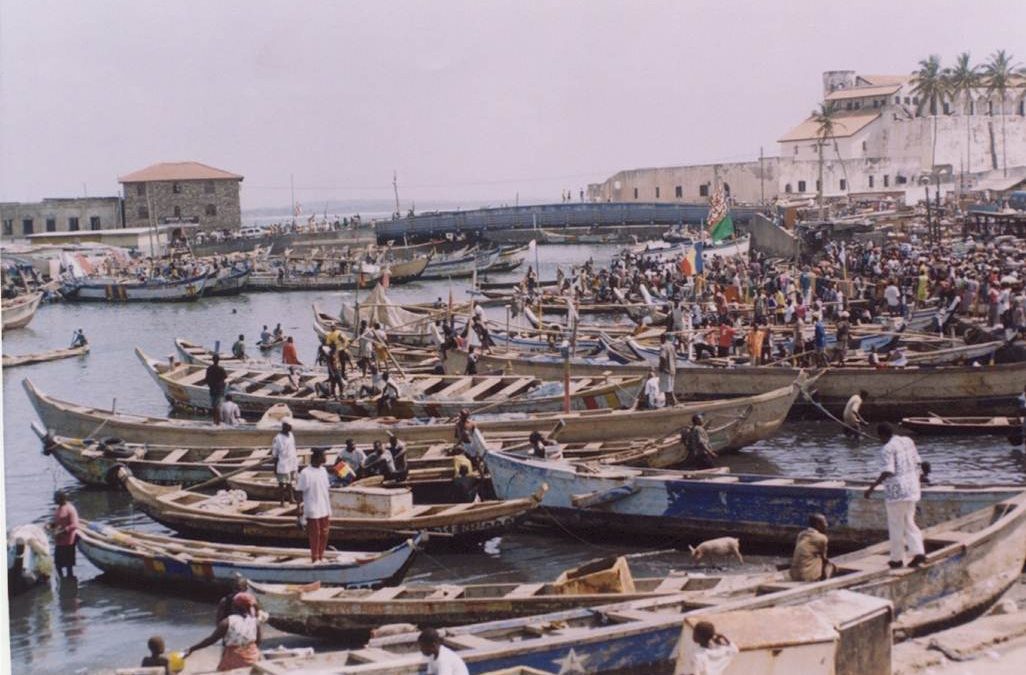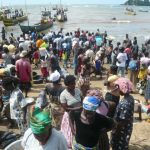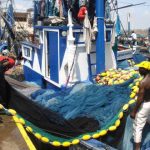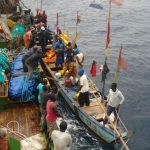The Mwananchi Ghana project now comes to end. Friends of the Nation was part of the Mwananchi Ghana’s Grant Partners (MGP) who have used innovative communication strategies to enable citizen participation. With support from the Mwananchi-Ghana Project, FoN sustained the momentum that has been built starting 2002 in the fisheries sector to bring and keep grassroots fisherfolk dialoguing with other stakeholders culminating recognition of traditional and local fisheries regulations hitherto enforced by the chief fishermen and his elders as a means of contributing to sustainable fisheries, livelihoods, environmental sustainability and food security in the communities.
The local governance bodies (District Assemblies) pay little attention to the fishing industry in Ghana despite its importance to the local economy. Not only are the fisheries regulations not enforced rigorously, but also there is little transparency in how the Fisheries Development Fund is utilized by the Government. A law (LI 1986) which bans some fishing methods (e. g. light, chemicals, small-sized mesh nets) was passed in June 2010 to address some of the threats to fishing. The L.I. is good for sustainability in fishing, but in the short term it has adversely affected the operations of local fishermen, who constitute only a small part of the group of people using unsustainable fishing methods: The major problem for the fishing environment are the pair trawlers and foreigner-manned fishing vessels who continue to disregard fishing regulations and get away with it.
To address these problems FoN used a well-targeted information, education and communication (IEC) strategy to avoid conflict and to facilitate the adoption of the desired knowledge, behavioural change, attitude and practices required for a sustainable exploitation of fisheries resources. The strategy included meetings, durbars, workshops, drama productions and media programmes on governance issues in the fisheries sector. Opportunities for dialogue among key stakeholders were created to encourage more transparency on the menegement of the fisheries sector, including the utilization of the Fisheries Development Fund.
The Mwananchi Programme, with an objective for citizens to engage, facilitates learning on how civil society, media, elected representatives, and traditional leaders can enhance ordinary citizens’ ability to hold their governments accountable, and improve essential public services delivery (such as health and education) in six different African countries, including Ghana. It focussed on enhancing the voices and influence of “mwananchis” – the ordinary citizens – including poor and disempowered groups such as disabled people, young people and women”.
Mwananchi’s theory of change, goals and ways of influencing policy change are based on a rigorous approach to evidence and action research. Neither everyone nor every organisation can change the rules of the game, especially rules in favour of poor people. The programme carefully identifies and nurtures game-changing behaviour among civil society, media, traditional leaders and local communities. Interaction between stakeholders, interlocutors and audiences is multi-directional and participatory. Mwananchi aims to talk with, rather than at, its priority stakeholder groups and audiences.
Lastly, it put emphasis on building lasting and positive relationships; and finding areas between adversaries where mutual advantage can be identified, promoted and used for the benefit of poor people.
The Mwananchi Programme was a five-year project, funded by the Governance and Transparency Fund (GTF) of the UK Department for International Development. The project learns about how civil society, media, elected representatives, and traditional leaders can enhance ordinary citizens’ ability to hold their governments to account, and improve delivery of essential public services (such as health and education) in six different African countries which are Ethiopia, Ghana, Malawi, Sierra Leone, South Sudan and Uganda.[divider_padding]
Learn more about Friends of the Nation’s activities under Mwananchi here
- Read an article written by FoN Programme Coordinator published on Thomson Reuter’s Sustainability Platform
- More about Mananchi Ghana on the project homepage
- Read full report(pdf) of the Mwananchi Ghana Project




